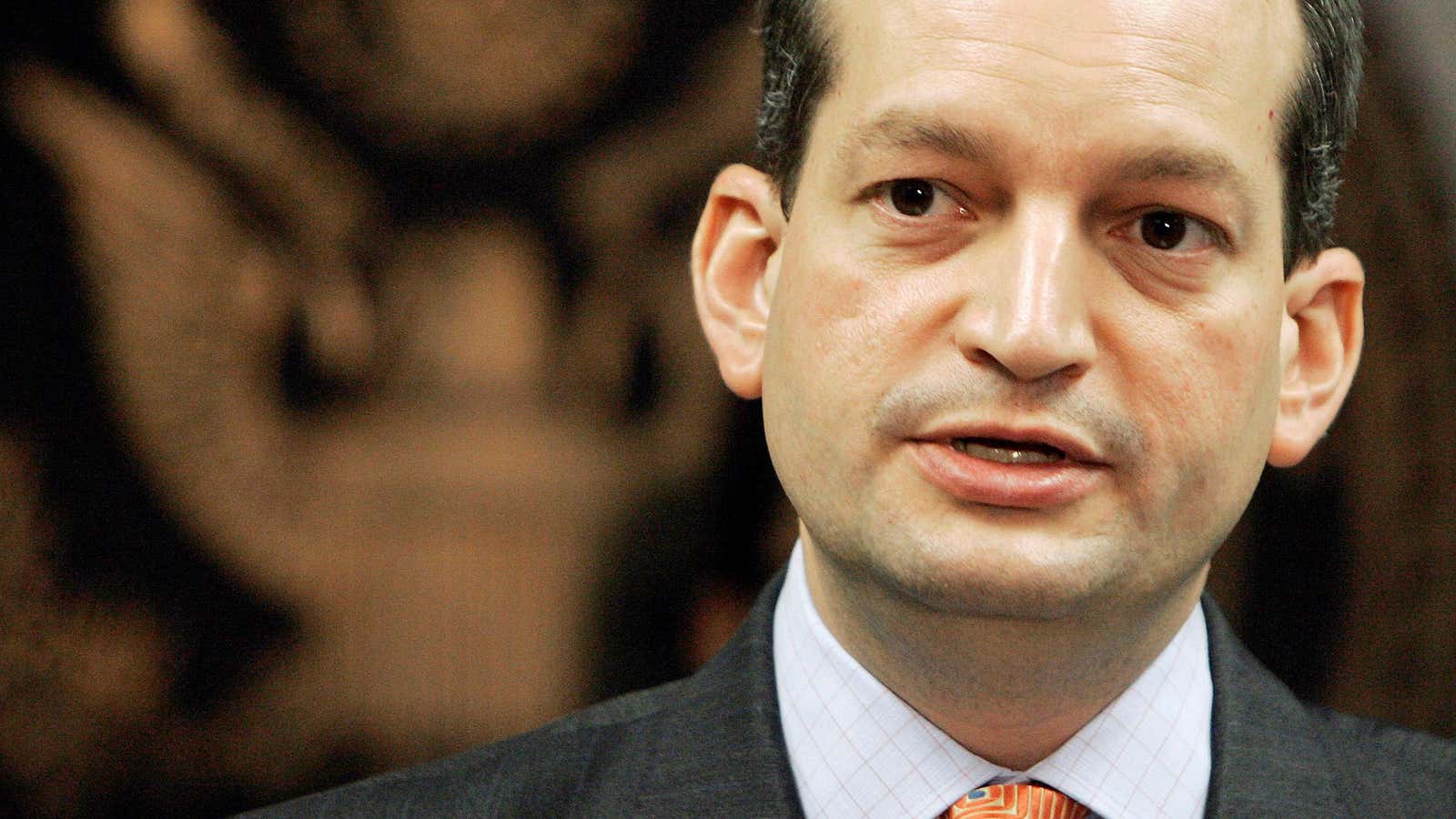President Donald Trump’s new nomination for US labor secretary, Alex Acosta, testified before Congress in 2011 about the importance of protecting the civil rights of Muslim Americans.
Acosta, who is currently dean of the Florida International University College of Law, had previously served as an assistant attorney general for the Civil Rights Division of the Department of Justice under the George W. Bush administration. At a Senate subcommittee hearing called in response to what its chairman referred to as ”the rise in anti-Muslim bigotry over the last year including Quran burnings, restrictions on mosque construction, hate crimes, hate speech, and other forms of discrimination,” he told the stories of two young Muslim Americans.
One was a male student at FIU who had previously served in the Florida National Guard and the US Army, and who was at the time running for student body president. The second was a young woman who, at age 11, had been suspended from her school for wearing a hijab—the school said the piece of clothing had “frightened” other students. Acosta said:
I speak about these two individuals because I think their stories highlight principles that make our nation great. The first of these principles is that foremost we are all Americans. I grew up under the presidency of Ronald Reagan, and have read many of his speeches. A less known talk, but one that captured this principle well, was his response to a question from a high school student in Suitland, Maryland, near the end of his presidency in January 1988. When asked what America stood for, he said: ‘But this thing about America—I got a letter from a man the other day, and I’ll share it with you. This man said you can go to live in Turkey, but you can’t become a Turk. You can go to live in Japan, but you cannot become Japanese—or Germany or France—and named all the others. But he said anyone from any corner of the world can come to America and become an American.’
He closed his testimony with this thought:
As we approach the tenth anniversary of 9-11, I feel obligated to state the obvious. As a nation, we have not forgotten the events of ten years ago. Emotions remain charged, and the desire to blame remains high. Now is a good time to remember that no community has a monopoly on any particular type of crime.
Since testifying at the 2011 hearing, Acosta has not been particularly outspoken about Muslim civil rights. But if confirmed as labor secretary, his views could be relevant to the job. The Department of Labor is responsible for enforcing workplace discrimination laws, including those that protect immigrants, and administering work-related visa programs.
Acosta’s testimony also seems to diverge with Trump’s view of Islam. Trump has said that “Islam hates us,” and he signed an executive order on Jan. 27 that indefinitely blocks Syrian refugees from entering the US, blocks refugees from all other nations for four months, and places a 90-day ban on entry to the country from seven Muslim-majority nations (read the full text here). At the time, he said he was ”establishing new vetting measures to keep radical Islamic terrorists out of the United States of America.” A Seattle federal district court has since issued a preliminary injunction that effectively blocks the order nationwide indefinitely.
Trump appointed Acosta one day after his original nominee for labor secretary, fast-food executive Andy Puzder, withdrew from consideration. Acosta has also served on the National Labors Relation Board and as the US Attorney for Southern District of Florida.
